News
Lampados completes Liteez production facility
26 Apr 2018Lampados International has completed a new plant expansion for the production of Liteez, a vegan, 3D meringue kiss sweetener for hot beverages.

Lampados International has completed a new plant expansion for the production of Liteez, a vegan, 3D meringue kiss sweetener for hot beverages. The new facility was designed according to eco-friendly principles to dramatically reduce energy and water use.
Lampados developed an entirely automatic, closed-system production process for Liteez that is said to ensure product safety and purity according to the strictest certifications, with full control over every step, including packaging.Production of meringue is typically highly sensitive to contamination, the company notes, especially during the foaming stage, and many meringue manufacturers engage this stage manually which also is labour intensive. The new closed system by Lampados is designed to prevent contamination throughout every step, allowing maximum flexibility that enables increasing capacity by 22 times.“When we set out to create a new sweetener, while we certainly strived for exceptional characteristics and functionality, we wanted to do so with responsibility,” said Noam Kaplan, CEO of Lampados. “Consumers—especially millennials—expect manufacturers to be a part of the community and take care of the environment. Part of Lampados’ mission is to make Liteez a better-for-you product in every aspect.”The new production process of the Liteez 3D sweetener allows water and energy savings due to:1. A more controlled foaming system that allows for a reduction of water in the mixture by 9%. This reduction also saves energy in the drying process.2. Heated pipes save 6% energy by getting the material from cold to drying temperature more rapidly.3. Shifting to a continuous process, washing equipment and utensils only once in each production, while still ensuring maximum safety and purity. This saves a further 47% on water usage.“As a family business, Lampados constantly turns back to its roots and core values,” said Kaplan. “We keep searching for innovation in flavor and functionality, but it also is important for us to conserve our precious resources. Water is one of the most valuable resource in Israel, so it is only responsible to reduce waste and at the same time produce our safe sweetener using only simple ingredients.”Related news

UK to ban junk food TV advertisements before 9pm
3 Oct 2024
In a bid to reduce childhood obesity, the UK government has introduced a policy, coming into effect on 1 October 2025, banning junk food advertising on television before the 9pm watershed.
Read more
Which food and beverage brands made TIME’s Most Influential Companies list?
2 Oct 2024
Chickpea pasta, prebiotic sodas, food boxes, non-alcoholic beer, and a soil carbon marketplace are the specialties of the five food and beverage brands that earned a spot on TIME’s 2024 list.
Read more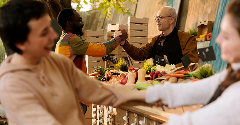
New environmental food scoring standards emerge
30 Sep 2024
EIT Food and Foundation Earth collaborate to launch environmental food scoring for products entering the global supply chain.
Read more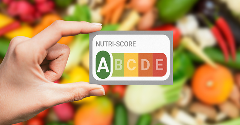
Danone removes NutriScore from products
20 Sep 2024
Following an algorithm update that gives some of its sweetened drinks a worse score, Danone has removed the front-of-pack label, NutriScore, from all of its products – putting profit before public health, say campaigners.
Read more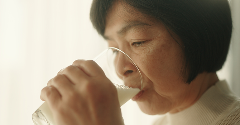
Nestlé develops a new fat reduction method for dairy ingredients
26 Aug 2024
A Brazil-based Nestlé research and development team has developed a way to reduce the fat in milk powder by as much as 60%, without impacting the key characteristics that consumers enjoy.
Read more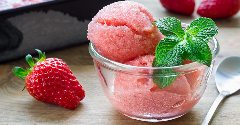
Better Juice expands its range to sorbets
16 Aug 2024
Food tech startup Better Juice has developed a technology to reduce the sugar content in fruit sorbets. The process retains the natural vitamins, minerals, and flavours of fruit, while offering manufacturers an easy-to-implement and scalable solution t...
Read more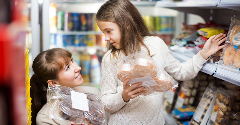
German study reveals high sugar, fat, and salt levels in children's foods
13 Aug 2024
The food industry is making slow progress in reducing the high levels of sugar, fat, and salt in German food and beverage products marketed to children, according to the Max Rubner Institute (MRI).
Read more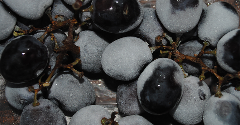
Swedish court overturns prohibition on winery’s use of imported frozen grapes
12 Aug 2024
Swedish company Drood Winery has successfully challenged the Swedish Food Agency’s decision to prohibit the production and sale of their product made from frozen grapes imported from Iran.
Read more
Paris Olympics: Food and beverage brands champion health, fun, and sustainability
5 Aug 2024
Food and beverage brands are aligning with the Paris Olympics 2024 Food Vision, which emphasises sustainability, local sourcing, and plant-based diets.
Read more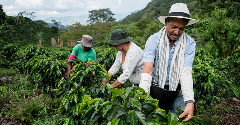
The coffee supply chain is failing farmers, says Solidaridad
30 Jul 2024
The coffee industry’s economic model means its profits do not reach farmers, despite there being enough value to be shared all along the supply chain, according to a new report by Solidaridad Network and IDH.
Read more